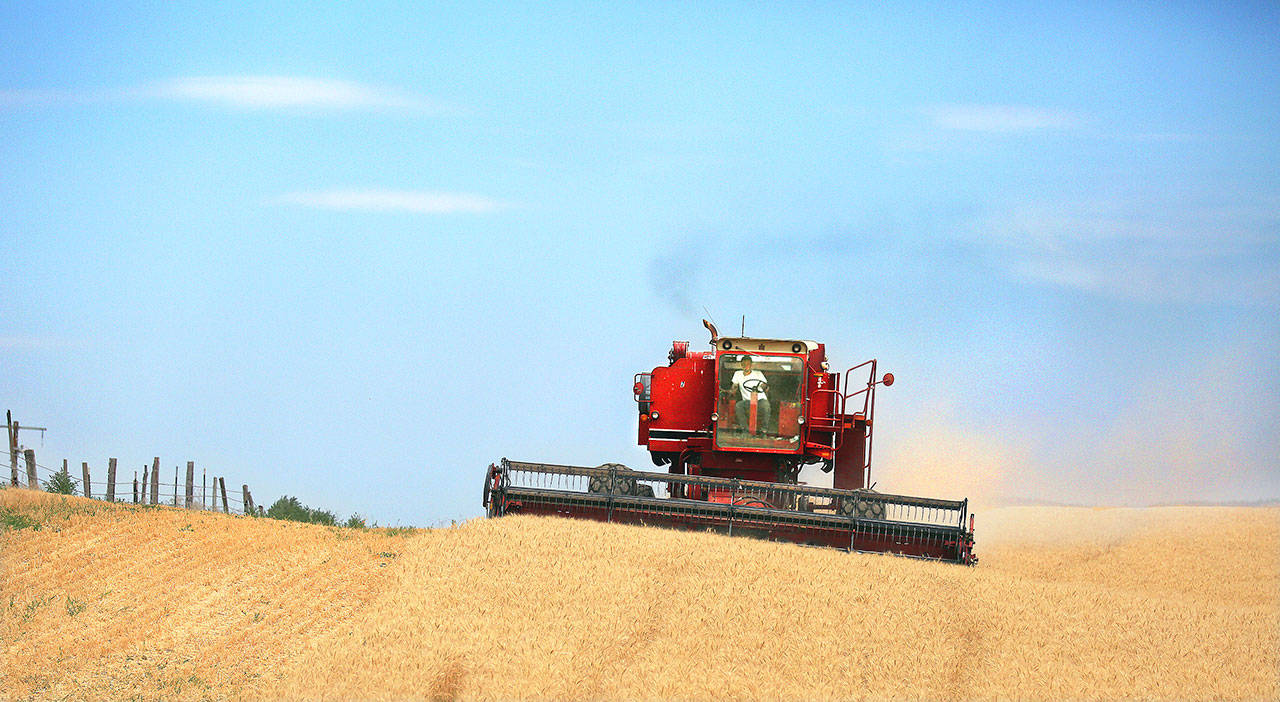By Gene Johnson / Associated Press
SEATTLE — Workers at a $1.7 billion polysilicon plant in central Washington believe President Donald Trump’s trade war with China may be their best chance for staying employed.
Unable to compete with Chinese factories aided by government subsidies and high tariffs, REC Silicon is shutting down the facility, which makes products used in solar panels. The company, which once numbered 500 workers, is keeping its remaining 200 on the payroll for six weeks in hopes that pressure from Trump will force China to make a trade deal. But the prospects are uncertain.
For other industries, the administration’s policies have been tough medicine, showing the complicated effects of tariffs in one of the nation’s most trade-dependent states.
Washington’s overseas shipments of apples, dairy, seafood, wheat and soy have plummeted. China has hinted it might order fewer Boeing planes, which make up a huge part of the state’s exports. A popular fishing boat company has seen orders canceled, a cooperative of Northwest dairy farmers has had to find alternative foreign markets, and a Seattle-based electric bike company, Rad Power Bikes, has curbed expansion plans.
“Certainly there are a couple companies that say, ‘Gee, I like that protection,’” said Robert Hamilton, Democratic Gov. Jay Inslee’s trade adviser. “But for many others it’s not been good. They have to increase cost to their customers or absorb the costs of the tariffs. Many have investment plans, and now all of a sudden their exports are down and the cash flow they were going to use to finance their investment is shaky.”
Washington exported more than $70 billion in goods last year, which accounted for 5 percent of American goods exported overall and 14 percent of U.S. goods exported to China. An analysis by Hamilton estimated that the administration’s tariffs, and retaliatory tariffs imposed by countries including China, Mexico and Canada, had already displaced 1,500 jobs in Washington.
According to the Washington Council on International Trade, 40 percent of jobs are linked to international trade.
Among them are those at REC Silicon, a Norway-based company that for years has been one of the top-paying employers in Moses Lake, a farming city in central Washington. Earlier this decade, the company, which prides itself on producing solar-grade polysilicon more efficiently than competitors, did about $600 million in annual sales to China.
But in 2014, after the U.S. imposed tariffs on Chinese solar panels, China retaliated with extremely high tariffs on U.S. polysilicon. REC was essentially blocked from the Chinese market, said Francine Sullivan, REC’s vice president of business development.
Last year, Trump levied a 30 percent tariff on Chinese solar panels. The solar industry has blamed the tariffs for delays and cancellations of major projects, but Sullivan calls Trump’s efforts “the only hope we have.”
“He’s trying to reopen markets that have been unfairly closed,” she said.
In the rural northeastern town of Colville, workers at Hewes Marine cut, bend and weld sheets of aluminum into fishing boats admired by anglers throughout the Northwest. There, Trump’s approach has been less welcome.
Retaliation by Canada for Trump’s steel and aluminum tariffs raised prices on the company’s boats north of the border. Trump’s decision last week to rescind the tariffs — and Canada’s reciprocation — will help, but market anxiety over the trade war with China has also cut into sales, said Clint Kirry, Hewes’ marketing director.
Many Hewes customers are older workers or retirees who have long saved for a boat, but might balk at spending $30,000 to $200,000 for a boat when their retirement accounts seem unstable, he said.
“We’re in a 6,000-person town, with the one Walmart, and the one McDonald’s, and the two small manufacturers here,” Kirry said. “We crank out some fantastic products, but we’re just getting punched in the mouth because of these tariffs and threats of tariffs.”
Stan Ryan, chief executive at Darigold, a cooperative of Northwest dairy farmers, said the organization was so hopeful of growing its business in China that last summer it opened an office in Shanghai — about the same time China increased tariffs on dairy from 10 percent to 25 percent in response to tariffs imposed by Trump. The coop’s $50 million in sales to China dried up; its roughly two dozen customers found other suppliers.
Nevertheless, many Washington dairy farmers support the trade war; China has given preferential treatment to Australian and New Zealand dairy products, Ryan said.
“It’s difficult in the short term, but they understand that and they’re supportive of getting to a level playing field,” he said.
Washington winemakers are in a similar boat. Exports to China represented a small but rapidly growing percentage of their business, but the duties now total 91 percent, making the cost of the bottle on the shelf prohibitive, said Josh McDonald of the Washington Wine Institute. China doesn’t impose tariffs on other key winegrowing nations, he said.
As in other industries, tariffs undercut relationships U.S. winemakers have with importers and distributors in China, he said. Even if the tariffs do get erased, it’s unclear how long it will take to re-establish those relationships.
Tom Dugan, chief executive of DeLille Cellars in Woodinville, said his winery had been hoping to get a big order from China this year, but just canceled a June marketing trip because it now seems unlikely. In the meantime, DeLille is looking toward other Asian markets.
“We’re hopeful it gets resolved,” Dugan said. “There’s not an alternative to China. There are maybe several alternatives that don’t add up to China.”
Talk to us
> Give us your news tips.
> Send us a letter to the editor.
> More Herald contact information.

























